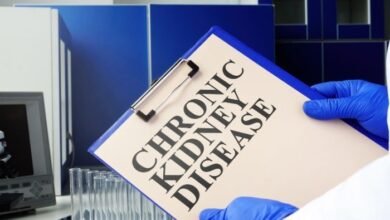Understanding Erectile Dysfunction: Causes, Treatments, and Prevention

Did you know that nearly 30 million men in the United States experience erectile dysfunction? Despite being a widespread issue, many men hesitate to seek help or talk about it openly. However, understanding the causes of ED, exploring available treatments, and learning how to prevent it can significantly improve both physical and emotional well-being.
In this article, we will explore the causes of erectile dysfunction, effective treatments, and preventive measures to maintain a healthy sex life.
What Causes Erectile Dysfunction?
Erectile dysfunction can result from a variety of physical, psychological, and lifestyle-related factors. Some of the most common causes include:
Physical Causes
- Heart Disease and Poor Circulation: Conditions that affect the heart, such as atherosclerosis (narrowing of the arteries), can reduce blood flow to the penis, making it difficult to achieve or maintain an erection.
- Diabetes: High blood sugar levels associated with diabetes can damage blood vessels and nerves, leading to ED.
- Obesity: Being overweight can contribute to poor circulation, hormonal imbalances, and conditions like high blood pressure, which are linked to erectile dysfunction.
- Hormonal Imbalances: Low testosterone levels or other hormonal issues can interfere with sexual desire and performance.
- Medications: Certain medications, including antidepressants, antihypertensives, and medications for prostate conditions, can contribute to ED as a side effect.
- Neurological Conditions: Disorders such as Parkinson’s disease, multiple sclerosis, and spinal cord injuries can affect nerve signals involved in sexual arousal and function.
Psychological Causes
- Stress and Anxiety: High levels of stress or anxiety can interfere with sexual arousal and make it difficult to relax enough to maintain an erection.
- Depression: Depression not only affects mood but also libido and sexual function. The medications used to treat depression may also contribute to ED.
- Relationship Issues: Emotional issues or unresolved conflicts with a partner can contribute to feelings of inadequacy and stress, which may affect erectile function.
How is Erectile Dysfunction Diagnosed?
If you’re experiencing symptoms of ED, it’s important to consult a healthcare provider for a proper diagnosis. The doctor will typically:
- Conduct a Physical Exam: They may check for underlying health conditions like diabetes, heart disease, or obesity.
- Ask About Medical History: Understanding past medical conditions, medications, and lifestyle choices helps identify the root cause.
- Request Blood Tests: Blood tests can assess hormone levels, cholesterol, and blood sugar, which may be contributing factors.
- Perform a Psychological Evaluation: If a psychological cause is suspected, the doctor may recommend counseling or therapy.
Did you know that addressing the root cause of ED is key to finding the right treatment and restoring sexual health? Whether it’s a physical or psychological issue, pinpointing the cause can guide effective treatment.
What Are the Treatment Options for Erectile Dysfunction?
There are several treatment options available for erectile dysfunction, depending on the underlying cause.
Lifestyle Changes
Making healthier lifestyle choices can improve ED significantly:
- Exercise Regularly: Physical activity increases blood flow and boosts energy levels, which can improve erectile function.
- Eat a Healthy Diet: A diet rich in fruits, vegetables, whole grains, and lean proteins can improve overall health and reduce the risk of ED.
- Quit Smoking and Limit Alcohol: Smoking can damage blood vessels, while excessive alcohol can reduce sexual performance. Limiting both can improve ED.
- Manage Stress: Practice relaxation techniques such as meditation, yoga, or deep-breathing exercises to reduce stress levels.
Medications
- PDE5 Inhibitors: These are the most commonly prescribed medications for ED. Drugs like Viagra, Cialis, and Levitra increase blood flow to the penis and help achieve and maintain an erection.
- Hormone Replacement Therapy: For men with low testosterone levels, hormone therapy may be recommended to improve libido and sexual function.
Therapy and Counseling
- Psychological Counseling: For men whose ED is caused by psychological issues, therapy can help address stress, anxiety, or depression. Couples therapy may also be beneficial if relationship problems are contributing to ED.
- Sex Therapy: A sex therapist can help couples address intimacy issues, sexual dysfunction, and emotional concerns related to sexual performance.
Medical Devices
- Penile Pumps: A vacuum pump can be used to draw blood into the penis, creating an erection. This is often used when medications aren’t effective.
- Penile Implants: In cases where other treatments have failed, surgical implants can provide a permanent solution for achieving an erection.
Surgical Treatments
- Vascular Surgery: If ED is caused by poor blood flow due to blockages in the arteries, surgery may be necessary to improve blood circulation to the penis.
Can Erectile Dysfunction Be Prevented?
While not all cases of erectile dysfunction can be prevented, there are several steps men can take to reduce the risk of developing ED.
Maintain a Healthy Weight: Obesity is closely linked to ED. Maintaining a healthy weight through a balanced diet and regular exercise can significantly lower the risk.
Control Chronic Conditions: Managing conditions like diabetes, high blood pressure, and high cholesterol can prevent the vascular damage that often leads to ED.
Avoid Smoking and Excessive Alcohol: Smoking and excessive drinking are major contributors to ED. Quitting smoking and limiting alcohol intake can improve sexual function.
Stay Active: Regular physical activity promotes good circulation, improves cardiovascular health, and boosts libido, all of which can help prevent ED.
Manage Stress and Mental Health: Practicing mindfulness, seeking counseling, and addressing mental health issues can prevent psychological causes of ED.
When Should You See a Doctor?
If you experience erectile dysfunction, it’s important to consult a doctor. ED can be a sign of an underlying health problem, such as heart disease or diabetes, that requires medical attention. If you’ve been experiencing difficulty getting or maintaining an erection for a few weeks or months, it’s best to seek professional help.
Did you know that erectile dysfunction can sometimes be an early warning sign of more serious health issues, such as heart disease or diabetes? Getting a timely diagnosis can help prevent other complications down the road.
Conclusion
Erectile dysfunction is a common issue that many men experience, but it’s also a treatable one. Understanding the causes, exploring treatment options, and making lifestyle changes can go a long way in improving sexual health. If you’re experiencing ED, don’t hesitate to consult a doctor – with the right approach, you can regain your confidence and lead a fulfilling sex life. Whether the cause is physical, psychological, or lifestyle-related, there are effective treatments and preventive measures available to help manage ED and improve overall health.




